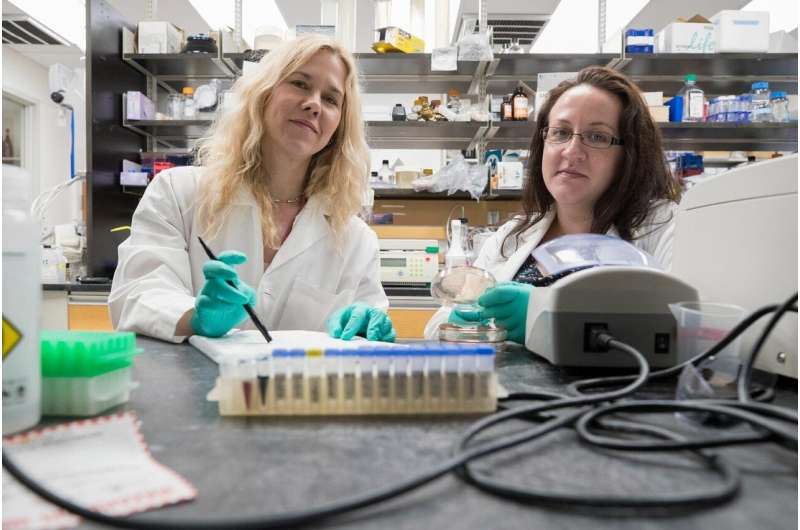E. coli's secret weapon for causing the worst possible infection

A pair of University of Virginia School of Medicine scientists have revealed how E. coli seeks out the most oxygen-free crevices of your colon to cause the worst infection possible.
The new discovery shows just how the foodborne pathogen knows where and when to begin colonizing the colon on its way to making you sick. By recognizing the low-oxygen environment of the large intestine, the dangerous bacterium gives itself the best odds of establishing a robust infection—one that is punishing for the host.
"Bacterial pathogens typically colonize a specific tissue in the host," researcher Melissa Kendall of UVA's Department of Microbiology, Immunology and Cancer Biology said. "Therefore, as part of their infection strategies, bacterial pathogens precisely time deployment of proteins and toxins to these specific colonization niches in the human host. This allows the pathogens to save energy and avoid detection by our immune systems and ultimately cause disease.
"By knowing how bacterial pathogens sense where they are in the body, we may one day be able to prevent E. coli, as well as other pathogens, from knowing where it is inside a human host and allow it to pass through the body without causing an infection."
A Bacterial Goldilocks
E. coli naturally lives in our colons, and most strains do us no harm. But there are several strains that can cause cramps, diarrhea, vomiting, even kidney failure and death. Children are at particular risk. As such, E. coli outbreaks appear periodically in the news. In July, for example, people in several states were sickened by E. coli linked to ground bison meat.
Kendall and graduate student Elizabeth M. Melson have shed important light on how harmful E. coli infections establish themselves in the body. The researchers outlined a process the bacteria use to detect low oxygen levels in the large intestine and then produce proteins that allow E. coli to attach to host cells and establish infection.
Oxygen actually diffuses from the intestinal tissue into the gut, and there are comparably higher levels in the small intestine than the large. E. coli specifically waits until it has reached the low-oxygen large intestine before striking.
E. coli's vital asset is a small form of RNA that activates particular genes when oxygen levels are low enough, the researchers reveal. It's at this point that the infection really gets established. Thanks to this natural sensing process, the bacteria are able to establish infection and begin to manufacture harmful Shiga toxins.
The researchers believe that other bacterial pathogens, such as Shigella and Salmonella, likely employ a similar control mechanism, although more work needs to be done to establish that.
"If scientists can figure how to block oxygen sensing, we may be able to prevent E. coli from making proteins that allow it to stick to our guts," Kendall said. "This may be an effective strategy to limit infection, and because we are not targeting growth or survival, E. coli may not develop drug resistance—it just doesn't know where it is."
Kendall and Melson have published their findings in the scientific journal PNAS.
More information: Elizabeth M. Melson et al. The sRNA DicF integrates oxygen sensing to enhance enterohemorrhagic Escherichia colivirulence via distinctive RNA control mechanisms, Proceedings of the National Academy of Sciences (2019). DOI: 10.1073/pnas.1902725116
Journal information: Proceedings of the National Academy of Sciences
Provided by University of Virginia



















